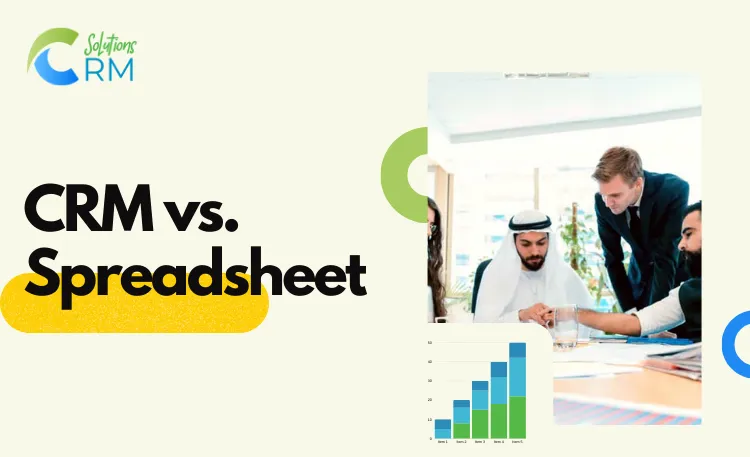In the world of customer management, the trusty spreadsheet has long been a go-to tool for businesses looking to keep track of valuable customer data. But as technology advances and customer relationships grow in complexity, it’s becoming increasingly clear that spreadsheets just can’t keep up. In this article, we’ll explore the limitations of using spreadsheets for customer management and highlight the numerous advantages that modern CRM (Customer Relationship Management) solutions bring to the table.
The Spreadsheet Struggle
Spreadsheets like Microsoft Excel have their merits; they are familiar, readily available, and can be used for a variety of tasks. However, when it comes to managing customer relationships, they fall short in several critical ways:
1. Limited Data Structure: Spreadsheets are designed for data entry and manipulation, not for organizing complex customer data. They lack the structure and flexibility needed to handle diverse information like contact details, purchase history, and interactions.
2. Manual Data Entry: Maintaining accurate customer records in spreadsheets often involves extensive manual data entry. This not only consumes valuable time but is prone to errors, leading to data inconsistencies.
3. Inadequate Tracking: Spreadsheets struggle to provide real-time tracking of customer interactions. This means you may miss critical touchpoints and opportunities to engage with customers effectively.
4. Collaboration Challenges: When multiple team members need access to customer information, spreadsheets can become a logistical nightmare. Sharing and collaborating on a single spreadsheet file can result in version conflicts and data integrity issues.
5. Limited Automation: Spreadsheets lack automation capabilities. They can’t automate routine tasks like sending follow-up emails, tracking lead progress, or setting reminders for important customer interactions.
The CRM Advantage
Modern CRM solutions offer a comprehensive alternative that addresses these shortcomings and brings a host of benefits to your customer management efforts:
1. Structured Data: CRM systems provide a structured framework for organizing customer data, making it easy to input and retrieve information. This structured approach allows for a more holistic view of your customers.
2. Automation: CRM systems automate repetitive tasks, such as data entry, lead nurturing, and appointment scheduling. This automation saves time and reduces the chance of errors.
3. Real-Time Tracking: With CRM, you can track customer interactions in real-time. This means you can respond promptly to inquiries, provide personalized experiences, and identify opportunities for upselling or cross-selling.
4. Collaboration: CRM systems offer collaborative features, allowing multiple team members to access and update customer data simultaneously. This enhances teamwork and ensures data accuracy.
5. Advanced Analytics: CRM systems come equipped with robust analytics tools. You can track customer behavior, monitor sales performance, and generate insightful reports to inform your strategies.
Conclusion
While spreadsheets have been a trusted tool for many businesses, they fall short when it comes to managing complex customer relationships. Modern CRM solutions offer a structured, automated, and collaborative approach to customer management that drives efficiency and improves customer engagement. The choice is clear: when it comes to managing customer relationships, CRM systems outshine spreadsheets in every way. Make the switch and empower your business to deliver exceptional customer experiences and drive growth. Your customers will thank you, and so will your bottom line.




